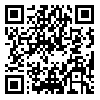Volume 15, Issue 5 (September & October 2024)
BCN 2024, 15(5): 649-658 |
Back to browse issues page
Download citation:
BibTeX | RIS | EndNote | Medlars | ProCite | Reference Manager | RefWorks
Send citation to:



BibTeX | RIS | EndNote | Medlars | ProCite | Reference Manager | RefWorks
Send citation to:
Ghorbani M, Keykhosravi E, Hasanpour M, Abbasian Ardakani A, Mohammad Hosseini E. The Optimal Time for Postoperative Magnetic Resonance Imaging of the Sella in Patients With Pituitary Adenoma. BCN 2024; 15 (5) :649-658
URL: http://bcn.iums.ac.ir/article-1-2608-en.html
URL: http://bcn.iums.ac.ir/article-1-2608-en.html
Mohammad Ghorbani1 

 , Ehsan Keykhosravi2
, Ehsan Keykhosravi2 

 , Mohammad Hasanpour *1
, Mohammad Hasanpour *1 

 , Ali Abbasian Ardakani3
, Ali Abbasian Ardakani3 

 , Ehsan Mohammad Hosseini4
, Ehsan Mohammad Hosseini4 




 , Ehsan Keykhosravi2
, Ehsan Keykhosravi2 

 , Mohammad Hasanpour *1
, Mohammad Hasanpour *1 

 , Ali Abbasian Ardakani3
, Ali Abbasian Ardakani3 

 , Ehsan Mohammad Hosseini4
, Ehsan Mohammad Hosseini4 


1- Department of Neurosurgery, School of Medicine, Iran University of Medical Sciences, Tehran, Iran.
2- Department of Neurosurgery, School of Medicine, Mashhad University of Medical Sciences, Mashhad, Iran.
3- Department of Radiology Technology, School of Allied Medical Sciences, Shahid Beheshti University of Medical Sciences, Tehran, Iran.
4- Department of Neurosurgery, School of Medicine, Shiraz University of Medical Sciences, Shiraz, Iran.
2- Department of Neurosurgery, School of Medicine, Mashhad University of Medical Sciences, Mashhad, Iran.
3- Department of Radiology Technology, School of Allied Medical Sciences, Shahid Beheshti University of Medical Sciences, Tehran, Iran.
4- Department of Neurosurgery, School of Medicine, Shiraz University of Medical Sciences, Shiraz, Iran.
Abstract:
Introduction: Magnetic resonance imaging (MRI) is the preferred neuroradiologic tool for evaluating the sellar region. Pituitary adenomas account for about 15% of primary intracranial tumors. The optimal time for postoperative MRI of central nervous system neoplasms is 48 hours after surgery. Nevertheless, controversy exists regarding the timing of postoperative MRI in the sellar region. This study analyzed the sellar MRI findings of patients with pituitary adenoma at different times before and after surgery. Finally, we suggest the optimal time for postoperative sellar MRI imaging in patients with pituitary adenoma.
Methods: A total of 28 patients with pituitary adenoma were evaluated. All patients did four sellar MRIs. The first MRI was done before surgery, and three were done 48 hours, two weeks, and three months after the surgery. Finally, the MRI findings at different times were compared to each other.
Results: The pituitary gland and adenoma signals were constant at all time points. The signal of the packing material showed no differences in T1-weighted and T1-weighted with contrast sequences but showed changes in T2-weighted sequences.
Conclusion: Contrary to other intracranial neoplasms, there were no apparent changes in MRI signal intensity during the 3 months after surgery in patients with pituitary adenoma. There was also no superiority of one time point for performing follow-up imaging.
Methods: A total of 28 patients with pituitary adenoma were evaluated. All patients did four sellar MRIs. The first MRI was done before surgery, and three were done 48 hours, two weeks, and three months after the surgery. Finally, the MRI findings at different times were compared to each other.
Results: The pituitary gland and adenoma signals were constant at all time points. The signal of the packing material showed no differences in T1-weighted and T1-weighted with contrast sequences but showed changes in T2-weighted sequences.
Conclusion: Contrary to other intracranial neoplasms, there were no apparent changes in MRI signal intensity during the 3 months after surgery in patients with pituitary adenoma. There was also no superiority of one time point for performing follow-up imaging.
Type of Study: Original |
Subject:
Clinical Neuroscience
Received: 2022/11/23 | Accepted: 2023/04/4 | Published: 2024/09/1
Received: 2022/11/23 | Accepted: 2023/04/4 | Published: 2024/09/1
Send email to the article author
| Rights and permissions | |
 |
This work is licensed under a Creative Commons Attribution-NonCommercial 4.0 International License. |





